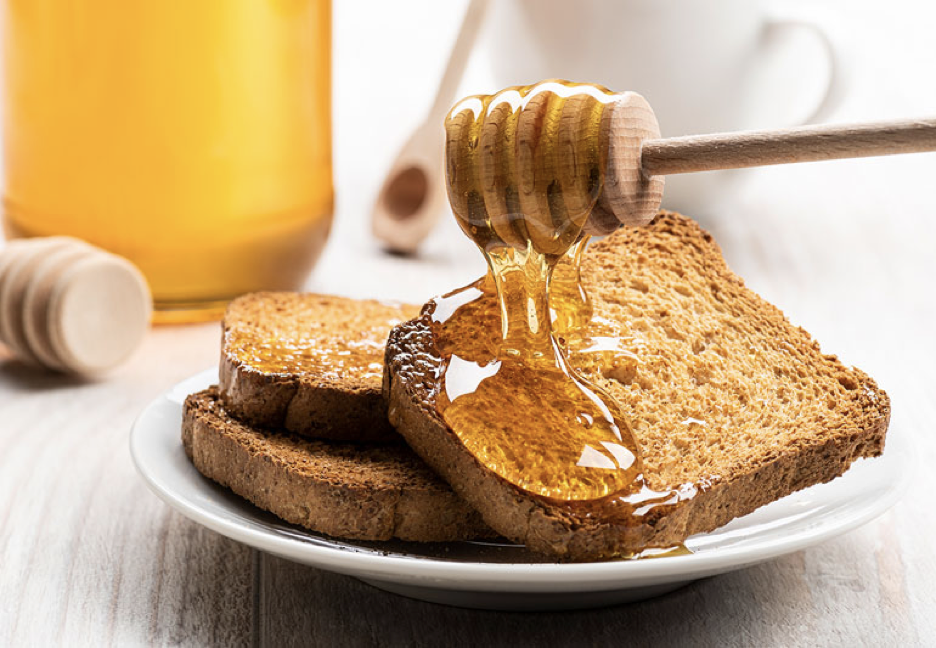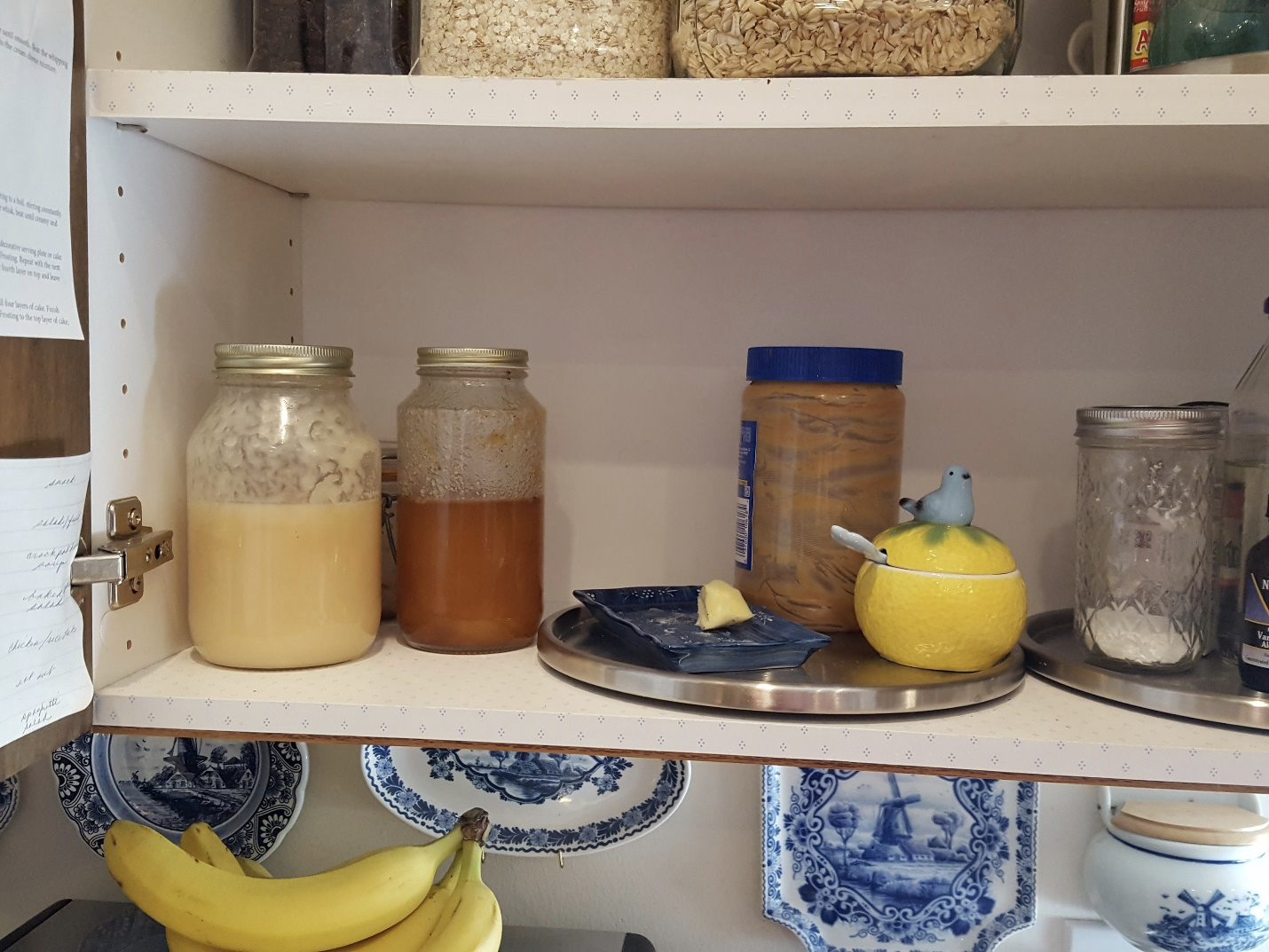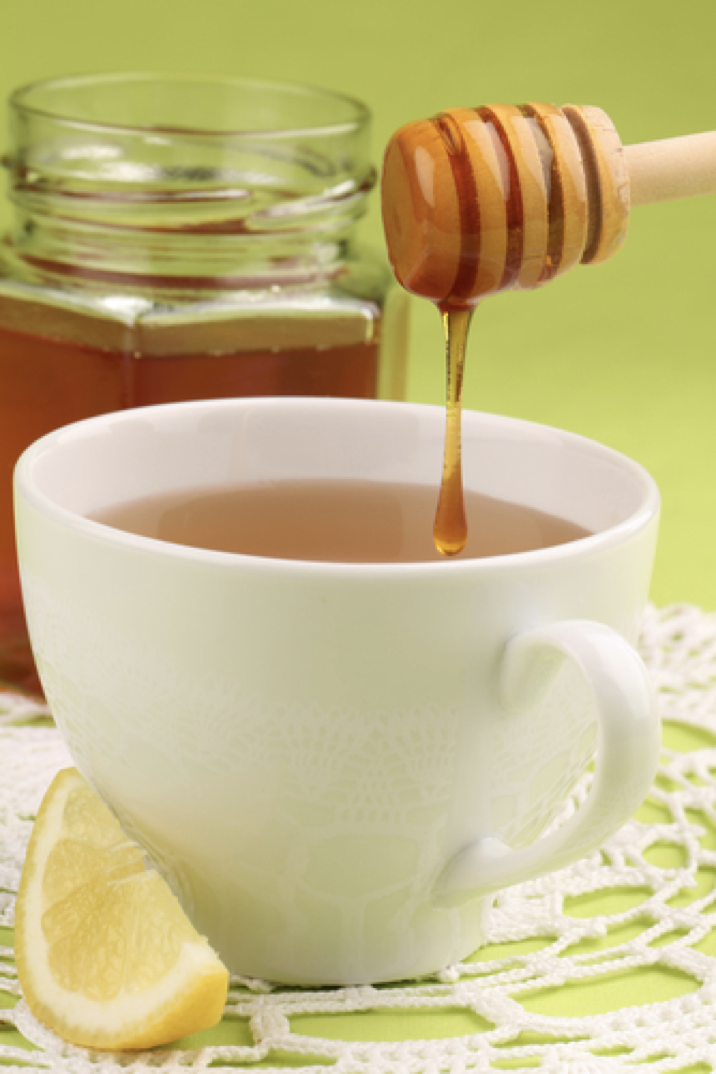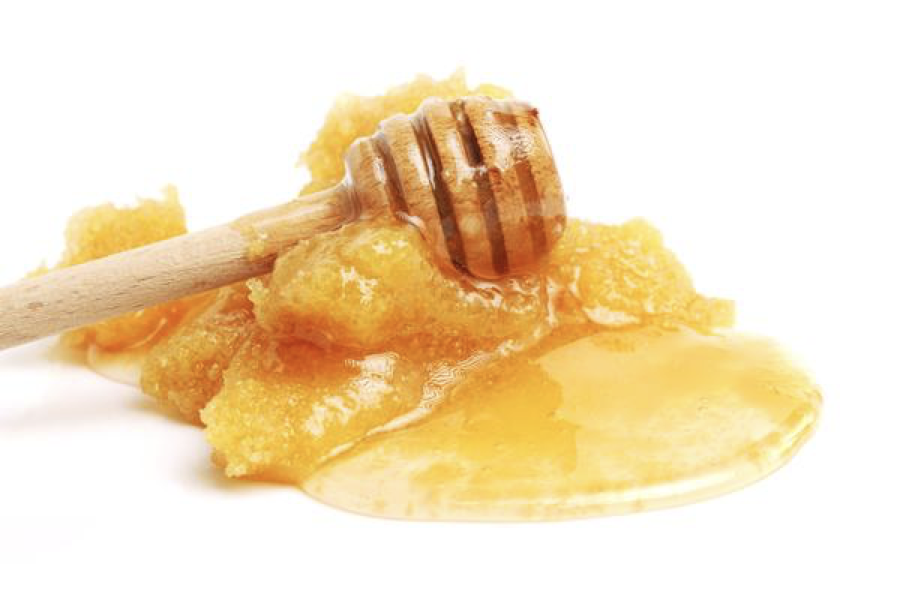Honey is Precious, So Store it Right!
I found an article on the Allrecipes.com site (by Hayley Sugg, Associate Editor) explaining the DOs and DON’Ts of storing honey. Since this is a precious commodity with so many uses, I read the article through.

Honey can last forever. While it might harden or crystallize, it never goes bad (unless it’s been adulterated with bacteria somehow). But here’s the thing: By storing it correctly you can typically avoid the hardening or crystallizing of your honey. So why not? Hayley suggests we follow these three tips:
ALWAYS STORE IT AT ROOM TEMPERATURE. Actually, honey does fine when stored at practically any temperature. It’s resistant to bacterial growth due to its unique composition. It's fairly acidic and has a low water content. These characteristics create a bacteria-unfriendly environment. Thus, with no bacteria to worry about, there's also no spoilage to fret over, and you don't need to keep it in your fridge. A kitchen cupboard or pantry will do fine.

AVOID AIR AND LIGHT EXPOSURE. Air is honey’s enemy. It ruins the honey’s viscosity. The best way to keep air and honey apart it to store it in the container it came in. These bottles and jars are often designed minimal entry points for air, thus they’re the best for long-term storage. If you do need to change containers, make sure it's air-tight. Glass or plastic is preferred; metal can oxidize the honey leading to off flavors.
Sunlight is less than ideal for honey (which is not great for stored flour either). The sunlight and the increase in temperature that accompanies it, can take a toll on the sweetener. So, when choosing a storage site, avoid windowsills, cabinets near stoves and ovens, or anywhere that's hit by sun.
PREVENT CONTAMINATION (aka growth of bacteria). Never stir your tea and then dip your stirring spoon into your honey. This will introduce water into the honey, creating a more appealing environment for bacterial growth or fermentation. First do the honey-dip, THEN stir your tea.

Ever wondered how long honey will last? The short answer is indefinitely. Perfectly good honey has been found in centuries’ old tombs and burial chambers. But the longer answer is, it depends on the type of honey, how well it's stored, and how it's manufactured. The high level of sugar in honey makes it one of the most shelf-stable foods you can buy.
While you may not want to eat something older than you, you can rest assured that honey is still safe to eat if it looks like honey. Even if it has a grainy texture or weak flavors, it’s still safe.

There is one caveat to honey, however. It’s not safe for babies younger than 1 year. They can get infant botulism, which is caused by a toxin from Clostridium botulinum bacteria, found in small parts in honey. But after 1 year, this toxin has no effect whatsoever, and it is strongly outshined by all the health benefits of honey (high in antioxidants, lowers blood pressure, improves cholesterol, and lowers triglycerides).
Lastly, the bottom line to this honey tutorial? It’s actually safe no matter where you store it, and only flavor and texture are impacted if it’s not stored properly. But as mentioned above, it’s a precious commodity, so let’s not be careless with it. Proper storing and handling will ensure this sweet treat will last longer than you do!

Honey can last forever. While it might harden or crystallize, it never goes bad (unless it’s been adulterated with bacteria somehow). But here’s the thing: By storing it correctly you can typically avoid the hardening or crystallizing of your honey. So why not? Hayley suggests we follow these three tips:
ALWAYS STORE IT AT ROOM TEMPERATURE. Actually, honey does fine when stored at practically any temperature. It’s resistant to bacterial growth due to its unique composition. It's fairly acidic and has a low water content. These characteristics create a bacteria-unfriendly environment. Thus, with no bacteria to worry about, there's also no spoilage to fret over, and you don't need to keep it in your fridge. A kitchen cupboard or pantry will do fine.

AVOID AIR AND LIGHT EXPOSURE. Air is honey’s enemy. It ruins the honey’s viscosity. The best way to keep air and honey apart it to store it in the container it came in. These bottles and jars are often designed minimal entry points for air, thus they’re the best for long-term storage. If you do need to change containers, make sure it's air-tight. Glass or plastic is preferred; metal can oxidize the honey leading to off flavors.
Sunlight is less than ideal for honey (which is not great for stored flour either). The sunlight and the increase in temperature that accompanies it, can take a toll on the sweetener. So, when choosing a storage site, avoid windowsills, cabinets near stoves and ovens, or anywhere that's hit by sun.
PREVENT CONTAMINATION (aka growth of bacteria). Never stir your tea and then dip your stirring spoon into your honey. This will introduce water into the honey, creating a more appealing environment for bacterial growth or fermentation. First do the honey-dip, THEN stir your tea.

Ever wondered how long honey will last? The short answer is indefinitely. Perfectly good honey has been found in centuries’ old tombs and burial chambers. But the longer answer is, it depends on the type of honey, how well it's stored, and how it's manufactured. The high level of sugar in honey makes it one of the most shelf-stable foods you can buy.
While you may not want to eat something older than you, you can rest assured that honey is still safe to eat if it looks like honey. Even if it has a grainy texture or weak flavors, it’s still safe.

There is one caveat to honey, however. It’s not safe for babies younger than 1 year. They can get infant botulism, which is caused by a toxin from Clostridium botulinum bacteria, found in small parts in honey. But after 1 year, this toxin has no effect whatsoever, and it is strongly outshined by all the health benefits of honey (high in antioxidants, lowers blood pressure, improves cholesterol, and lowers triglycerides).
Lastly, the bottom line to this honey tutorial? It’s actually safe no matter where you store it, and only flavor and texture are impacted if it’s not stored properly. But as mentioned above, it’s a precious commodity, so let’s not be careless with it. Proper storing and handling will ensure this sweet treat will last longer than you do!
Sources:
- www.health.clevelandclinic.org
- www.kiwiimporter.com
- www.rangohoney.com
 Alice Osborne
Alice Osborne
Weekly Newsletter Contributor since 2006
Email the author! alice@dvo.com
